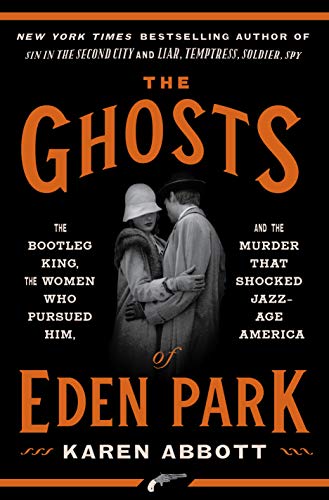The Ghosts of Eden Park: The Bootleg King, the Women Who Pursued Him, and the Murder That Shocked Jazz-Age America
The Ghosts of Eden Park chronicles the rise and fall of George Remus, “King of the Bootleggers,” during Prohibition. Author Karen Abbott illustrates how Remus’s ascension to the top of the crime ladder was facilitated at every rung by corrupt politicians and government officials, many who didn’t believe that restrictions on alcohol were fair and who personally never adhered to the law. If there was ever a Graft Era in America, the Twenties were it.
Remus builds a lavish lifestyle for himself and for his wife, Imogene. But when he is sent to prison on bootlegging charges, the marriage falls apart. Abbott depicts Remus as a jealous and petty tyrant with a volcanic temper. No slight is too small for revenge. When he learns that Imogene has taken up with a former government agent who’d once been sent to spy on him, he takes a series of desperate steps that will lead to his downfall.
A key figure in bringing him down is Mabel Walker Willebrandt, a Department of Justice prosecutor and the book’s heroine. A thoroughly modern woman, even for the Jazz Age, Willebrandt is always three steps ahead of Remus’s schemes and her own colleagues’ obtuseness about his cunning ways.
While Abbott does an expert job of stringing her prodigious research into a coherent narrative, her just-the-facts approach ensures that she is less successful at connecting Remus’s story to the vast social changes roiling the country at the time and at depicting the grandeur of the Twenties.










